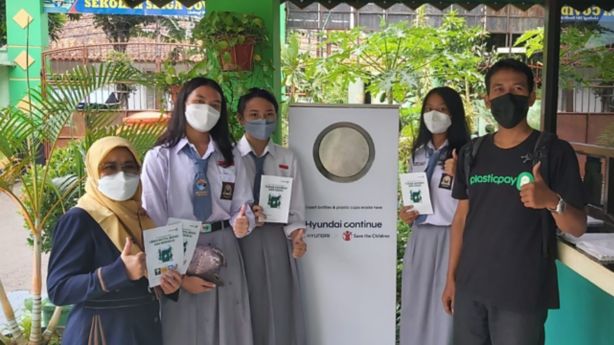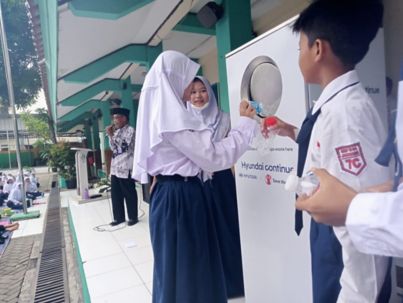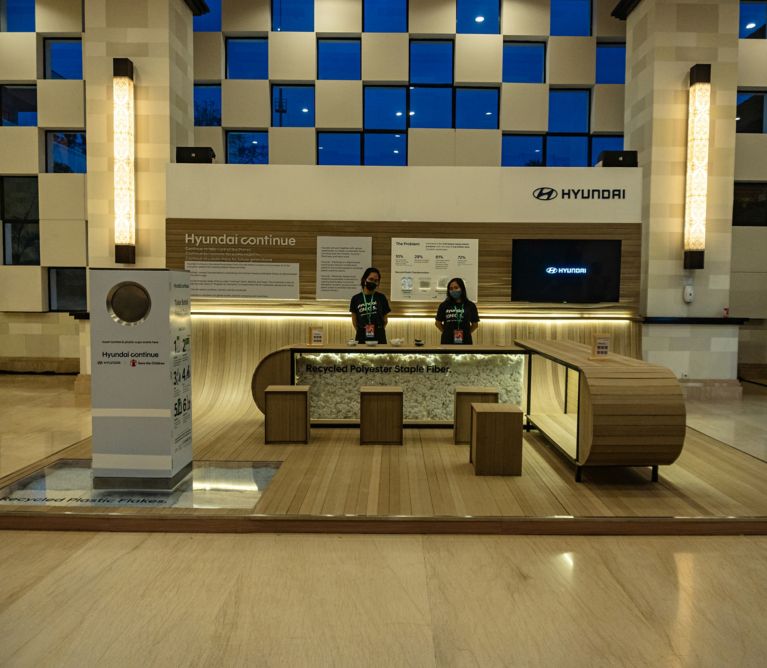- Hyundai Motor is leading four ‘Hyundai Continue’ projects focused on waste recycling and upcycling education and commercialization
- The company is enabling plastic waste recycling and upcycled goods production, create a biogas facility that will convert livestock manure into electricity and donate furniture made from wood waste to schools
- The company continues to expand eco-friendly activities that contribute to the circular economy for solving marine plastic pollution in Indonesia
Press material
-
Download
-
Images
Hyundai Motor Company is helping to address mounting concerns about pollution and waste in Indonesia through the global ‘Hyundai Continue’ initiative that focuses on creating a circular ecosystem by upcycling discarded waste into valuable products and resources.
Launched in January 2022, Hyundai Continue encompasses a variety of global Creating Shared Value (CSV) activities that are being carried out with local communities and non-governmental organizations (NGOs) around the world, such as areas of Java and Sumatra, Indonesia. The initiative is so named because it aims to “continue to take care of the planet, innovate for new mobility and create hope for future generations.”
Indonesia is a key hub for Hyundai Motor’s future mobility strategy, as we aim to help establish an EV ecosystem here. The four Hyundai Continue projects that we have underway also play an important role and further reflect our aim to help create a sustainable future in Indonesia.
The first Hyundai Continue project in Indonesia, which began earlier this year, is an eco-village creation project — the first of its kind implemented in Indonesia and one of the key plans of the Bekasi Regency government in West Java for 2022. The project entails the installation of plastic waste collection boxes, establishment of a recycling center, implementation of environmental protection education and commercialized production of goods from upcycled waste.


Kicking off in October, the second Hyundai Continue project in Indonesia promotes plastic waste collection and upcycling in northern and southern Jakarta. This project will help solve the problem of waste disposal through the installation of Hyundai Continue plastic collection boxes at 15 public schools and public spaces. The program includes basic environmental education for local children, adolescents and young families and enables the commercialized production of goods from upcycled plastic waste. All these measures are underway and expected to be in place by the end of the year as a pilot project.
The third Hyundai Continue project, which started in mid-October, will convert livestock manure into biogas to produce electricity as part of a circular ecosystem in Lampung Regency on the island of Sumatra. The aim is to improve the community environment through waste disposal, create jobs for infrastructure operation, turn discarded waste back into biogas and use it as power to restart facilities, and turn discarded waste into solid fuel to use as fertilizer for agricultural purposes. Moreover, the ultimate goal for Hyundai is to operate the biogas facility until the end of this year, and have the local community to eventually operate the facility by itself, starting next year.
The fourth Hyundai Continue project, which started in July, is the donation of 190 desks, 190 chairs and 20 bookshelves to public schools in communities near Hyundai Motor’s new manufacturing plant. Hyundai Motor Manufacturing Indonesia (HMMI) is working with a local furniture manufacturer to build the furnishings from approximately 15 tons of wood waste from the plant. When completed, the plant will deliver the furnishings to two primary schools and one vocational high school in Cikarang and nearby Pasiranji and Sukamukti. A hand-over ceremony in Cikarang on Nov. 2 will commemorate the donation.
Through these and future CSV projects, Hyundai Motor and HMMI will continue to promote a circular economy with a focus on the core tenets of the Hyundai Continue initiative. Following this year’s activities, it may be considered to implement mid-to long -term plans for various projects to help solve marine plastic pollution in Indonesia.













